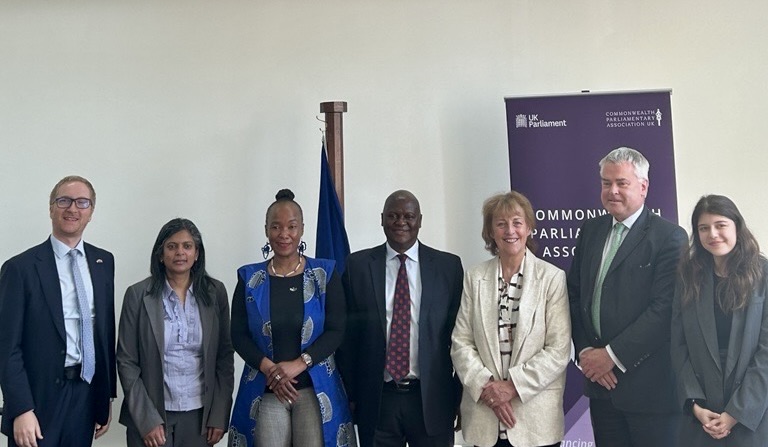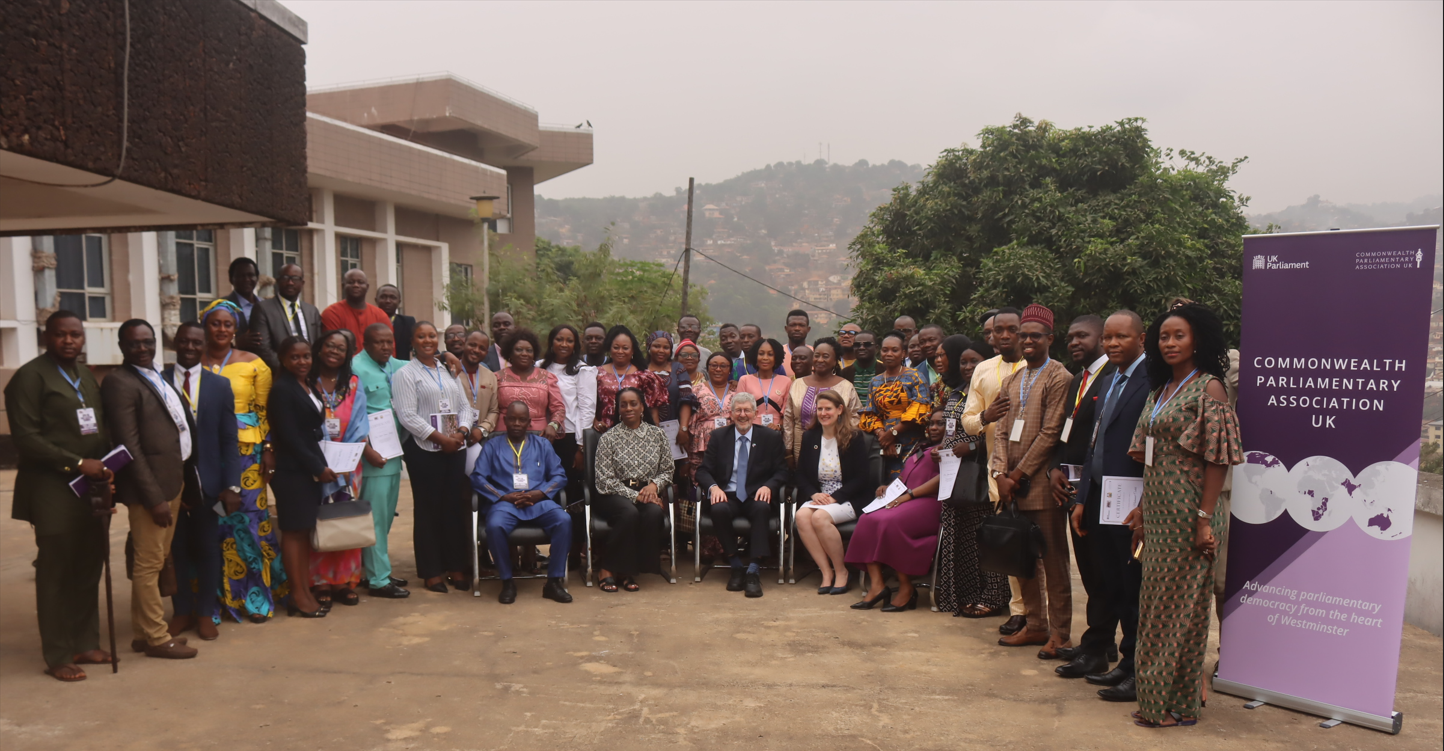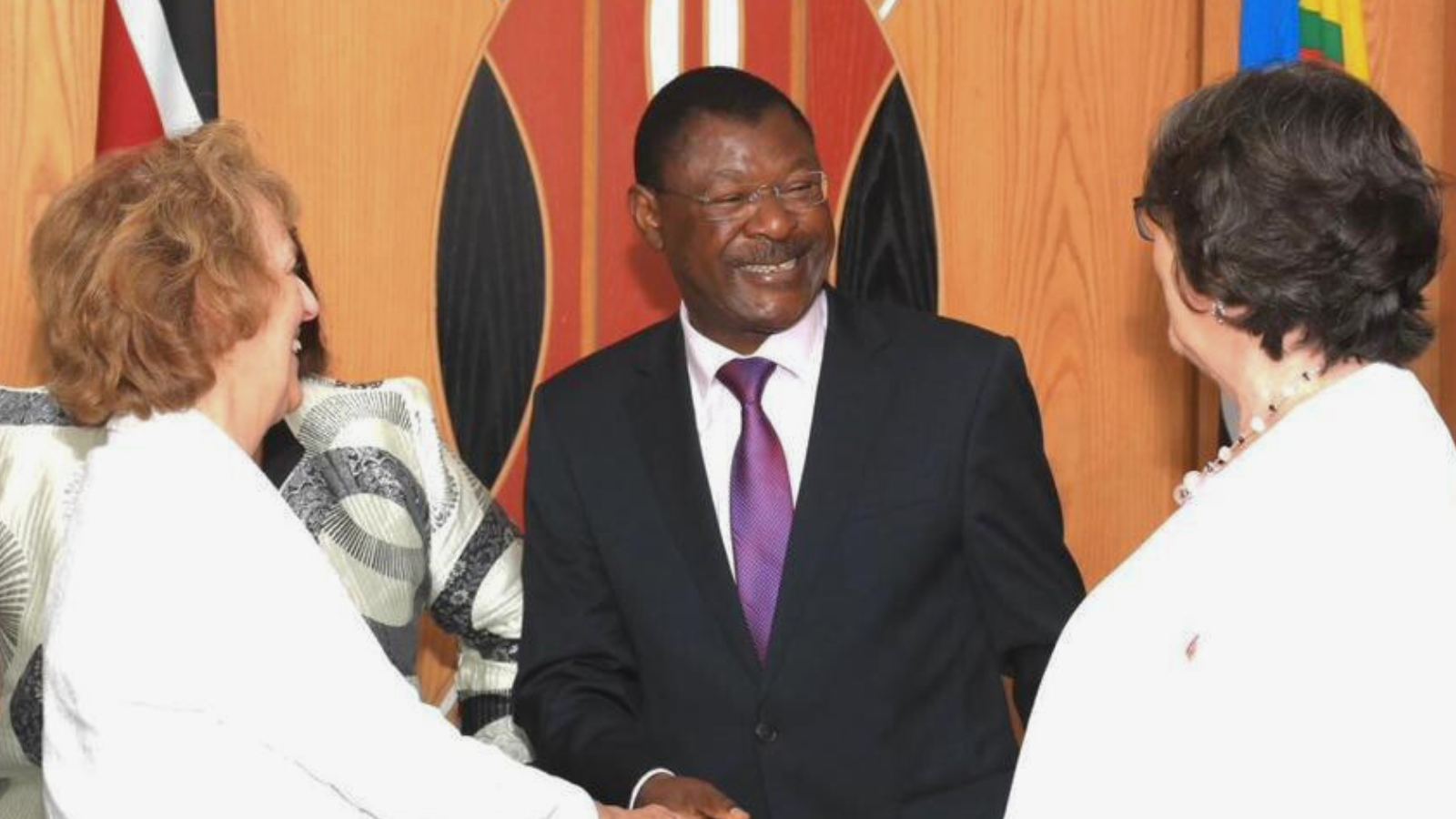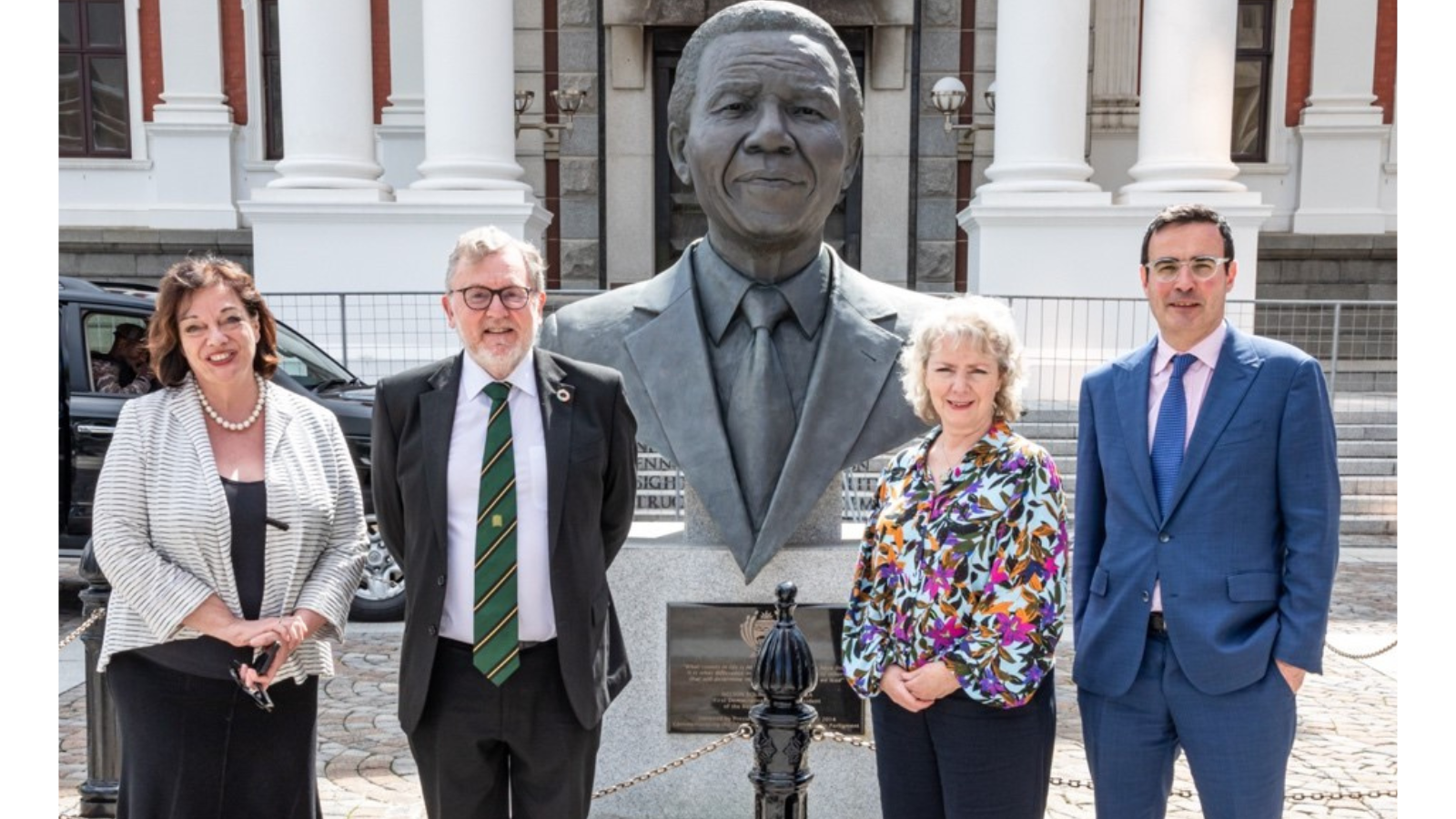Namibian clerks visit Westminster to discuss the work of select committees
Published 19 December 2019

From 9-11 December CPA UK welcomed a delegation of clerks from the Parliament of Namibia. The three-day capacity building programme focussed on good practices to run parliamentary committees. The programme drew on the feedback received from clerks and members during the programme on the management of committees and parliamentary business organised by CPA UK in April 2019 in Windhoek, Namibia.
Over the course of three days, participants explored ways to strengthen their skills for committee work. This included understanding the UK Select Committee system and its inquiry system, report writing, briefing for members, improving working relations with members, the roles and responsibilities of different stakeholders in this process, and effective methods for public consultation and engagement.
While discussing the UK Select Committee system delegates explored the support services that are provided to the select committees including Human Resources, Digital Services Finance, Restoration team. These teams all have historical information and figures on different elements of Parliament, which they can give to committees as part of their inquiries.
Delegates were surprised to know that the Chief Executive undertakes the management of the House as opposed to the Clerk of the House – usually the case in many countries – who deals with the business aspects of the House including HR, finance and outreach. They agreed that separate roles allow the House to hire someone with a business skillset.
One of the key highlights of the programme was the session on report writing. Delegates described their discussion as an ‘eye-opener’ for producing high-quality reports. During the discussion on report writing, delegates were taken through examples of broad recommendations made by committees and were asked to highlight how the recommendations could be sharpened and made more direct. Delegates inquired about the role of a Committee Specialist, considering this role does not exist within the Namibian system. It was also highlighted that where clerks are the procedural experts, Committee Specialists possess the subject matter knowledge.
Another session which delegates particularly enjoyed was how select committees could utilise the knowledge of NGOs and civil society groups. Delegates stated they were very keen to learn more about the NGO’s work as they feel the Namibian parliaments work can be better linked to that of civil society organisations. Delegates discussed past and ongoing work of the Namibian National Assembly with CSO’s, which includes an ongoing programme whereby they contribute to the work of the different committees. CSO’s have also conducted weeklong training programmes for members on areas including land tenures and legal support.
During the three days, delegates also visited the House of Commons library and the Education Centre.
The programme formed part of CPA UK’s Parliamentary Partnership Programme (PPP) with the Parliament of Namibia. Established in 2017, the PPP lays out a three-year engagement strategy to strengthen the technical skills of members and staff of the Namibian Parliament, based on priority areas identified by the Parliament. In the last two years, members of the National Assembly and the National Council have participated in a series of CPA UK programmes and activities, both in Windhoek and Westminster, to discuss, learn and share good parliamentary practices, to improve their knowledge and skills to undertake parliamentary responsibilities efficiently and effectively.



